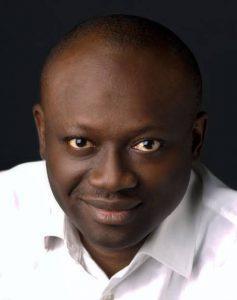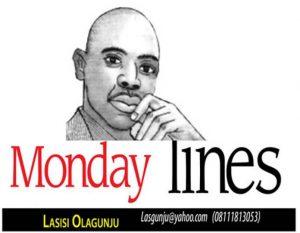As 2023 comes to an end today, I promise you that some of the stranger-than-fiction events that shaped the year will not fade away with it. Some will be etched in our memories forever. As a custom in Nigeria, general election years are always filled with doomsday predictions and expectations. “This is the year that will make or break Nigeria” is an expression I got used to since the 2003 elections. We were constantly reminded of the political events of 1963, 1983 and 1993 and how 2003 might follow the trend, especially with the first civilian-administered general election of the fourth republic. A strong link was created between the constant number “3” and major political crises in Nigeria.
Chief Obafemi Awolowo, former premier of the Western Region, was jailed for treason in 1963. Subsequent events accelerated the demise of the first republic and, some would argue, culminated in the civil war of 1967-70. In 1983, the civilian-administered general election led to a crisis that, some would also argue, ended up in military intervention. In 1993, the presidential election was annulled. The crisis it produced terminated the third republic, resulting in five crippling years of military rule. With bated breath, we awaited another disaster in 2003 but sailed through. There were no elections in 2013, so 2023, with its “3”, was to be another annus horribilis. We survived again.
Or haven’t we survived? I would say we have, but some would say we only muddled through. I still prefer “muddling through” to something worse. Some countries have gone to war, or experienced armed conflicts, or suffered military coups, after elections. This was not our story in 2023, despite how bitterly the elections were fought, won and lost. Even in the past, when people took to the streets, it was usually peaceful demonstrations and violent protests, but no armed struggle. I consider the 2023 general election as one of the most eventful ever as well as one of my extraordinary memories of the year — plus four other noteworthy developments. Here we go.
One, naira recoloration. Basically, what the Buhari administration did was to withdraw the naira from circulation under the guise of “redesign” to fight corruption and prevent “vote buying” in the general election. Neither the old nor the new notes were available as Nigerians went through hell trying to carry out basic transactions. They had to resort to the good old trade by barter. Many died because they were unable to prepay medical bills for critical treatments and surgeries. Nigerians were using naira to buy naira. Roadside POS operators suddenly became gods. Some were arrested by security agencies. Many Nigerians used the opportunity to showcase their wickedness.
Nigerians went through real hell. People were spending days and nights at the banks. Some resorted to attacking banking staff because of a widespread belief that, indeed, there was enough cash printed but it was being hoarded. The EFCC went through the regular drama of “arresting” bank executives for hoarding the new notes, but I am yet to hear of any trial or conviction. People were attacking ATMs, hoping to find some life-saving notes inside. The intervention of the Supreme Court to extend the life of the old notes brought some relief, but the CBN claimed to have destroyed the N1,000 notes. A challenged economy suffered memorable body blows. We survived all the same.
Two, the ascendancy of Bola Ahmed Tinubu to power. One of the most extraordinary events of 2023, or since the amalgamation of Nigerian protectorates in 1914, was the way and manner Tinubu became president of Nigeria. I claim to be a student of Nigeria’s electoral history, especially presidential polls, but I have to accept that the Tinubu story was an outlier. Alhaji Shehu Shagari won the 1979 presidential election because he had the backing of the establishment and formed a strong alliance in two southern states. He won re-election in 1983 with the power of incumbency. Bashorun MKO Abiola won in 1993 with a solid national political network but the establishment kept him out.
In 1999, Obasanjo had the support of military heavyweights, the establishment and a solid national political network. He was re-elected in 2003 with the power of incumbency. Yar’Adua was installed by the establishment in 2007, while Dr Goodluck Jonathan was helped by the power of incumbency in 2011 which he used to garner nationwide support. Buhari came to power in 2015 in one of the most extraordinary elections, defeating an incumbent — a first in our history — by securing an all-important alliance with the south-west to breast the tape. He was re-elected in 2019 obviously by deploying the power of incumbency. The establishment and incumbency are always critical factors.
Enter Tinubu. The all-important incumbency was not in his corner. Regardless, he got his party’s ticket. The naira policy was allegedly targeted at him. He made plenty gaffes and his rivals said he was not mentally and physically fit. He ran a Muslim-Muslim ticket in a deeply divided country. There were questions over his university degree. There were concrete rumours that an opposition candidate was the choice of the establishment. He lost the majority of votes in Lagos, his home turf, and the south, his region, but coasted home by winning the majority of northern votes against a seasoned northern candidate. Tinubu’s well-oiled political and institutional networks did the magic.

Three, who built Lagos? One unpalatable memory of the 2023 elections was the renewal of the age-old rivalry between Yorubas and Igbos in Lagos state. The fact that one of the presidential candidates, Peter Obi, was Igbo worsened the hostilities. There were reports of voter repression in favour of Tinubu. MC Oluomo, a staunch Tinubu supporter, was caught on video saying Igbos would not be allowed to vote in his polling unit. Obi enjoyed massive support from Igbos and an impressive number of non-Igbos while Tinubu did not have the full support of Yorubas and Christians. Obi did the unthinkable by defeating Tinubu in a state he was thought to be invincible. It was an earthquake.
Sadly, the bitter aftertaste of the politicking has refused to disperse, with both groups exchanging claims and counterclaims on who “built” or owned Lagos state. It is not a new debate — there are records of similar tensions during colonial era. Chief Emmanuel Iwuanyanwu, leader of Ohanaeze, the pan-Igbo interest group, fuelled the fire by claiming Igbos developed Lagos swamps. For me, one of the most unfortunate and unforgettable memories of 2023 is the Yoruba-Igbo face-off. I suspect things would get worse in future elections. My consolation is that it seems to be purely political. Socio-economic relations appear stable. Meanwhile, the romantic connections are still thriving.
Four, the Jim Obazee drama. From the time President Tinubu appointed Obazee as “special investigator” to probe the CBN under the tenure of Mr Godwin Emefiele, I had my popcorn by my side preparing to watch the theatrics. There were questions over the constitutionality of appointing a “special investigator” when the country already had a myriad of agencies, such as the EFCC and ICPC, that should do the job. I remember that a senior lawyer expressed worries that the sensitive books of a body like the CBN would be opened to a private individual to investigate. He questioned the legal basis for this. I do not know the law that much, so my interest was more in the Obazee drama ahead.
Obazee, who reportedly had an axe to grind with Emefiele since his days as the executive secretary of the Financial Reporting Council of Nigeria (FRN), has now written his report. It is one of my extraordinary memories of 2023. There is plenty venom in the emotional report. Obazee wrote: “The erstwhile CBN governor and his four deputy governors connived to steal outright in order to balance the books of the CBN. This was by violently taking money from the Consolidated Revenue account and then charging it to Ways and Means. They even created the narration as a presidential subsidy and expanded the ways and Means portfolio to accommodate crime.” Violently? That cracks me up.
The exuberant Obazee said Buhari did not approve naira recoloration (hahahahaha!) and that it was the ex-president’s nephew that did. He even recommended criminal prosecution, although his job is purely investigative. Recommendations are supposed to be made by the AGF, based on the report, but Lateef Fagbemi appears overwhelmed by his new job. Obazee even invited two shareholders in Titan Trust Bank, to report for questioning by December 28, 2023 — else their shares would be automatically forfeited to the government. Really? A “special investigator” can expropriate someone’s assets by fiat without a court pronouncement? Just like that? In a democracy? Hilarious.
Five, P&ID processed and pounded. Finally, away from politics. My man of the year has to be The Hon Mr Justice Robin Knowles of the Commercial Court of England and Wales. In January 2010, Nigeria had entered into a gas supply and processing agreement (GSPA) with Process & Industrial Developments Ltd (P&ID). Nigeria defaulted and repudiated the contract two years later. P&ID took us to the London Court of International Arbitration and won two awards years later: one, affirming our liability; two, getting a final “quantum” fine of $6.6 billion plus seven percent interest — about $1 million a day — backdated to March 2013. That came to a total of over $11 billion in 10 years.
We argued that P&ID did not do any work to warrant the $6.6 billion liability but failed. Things got worse in August 2019 when Justice Christopher Butcher of the Commercial Court ruled that P&ID could enforce the judgment. At the time, it was about $9.6 billion. Where would we get that kind of money? The Buhari administration fought hard and, in September 2020, successfully got an English court to suspend the enforcement of the award because of some proofs of corruption in the contracting process. On October 23, 2023, Knowles finally ruled in favour of Nigeria, agreeing that the arbitration awards “were obtained by fraud and the awards were… contrary to public policy”.
With Knowles setting aside the enforcement of the award, he had to choose one of three options: (1) remit the award to the arbitration tribunal, in whole or in part, for reconsideration; (2) set the award aside, in whole or in part; (3) declare the award of no effect, in whole or in part. Thereafter, he ruled that the case would not be remitted for fresh arbitration. He also fined P&ID £25 million. And then, to terminate all litigation and put Nigeria’s nightmare to rest, he finally ruled, on December 21, that P&ID would not have a right of appeal. That was Nigeria finally and truly off the hook, off the £11 billion guillotine! Knowles surely deserves a medal as big as a frying pan and a trailer of flowers.
AND FOUR OTHER THINGS…
PLATEAU MASSACRE
On Christmas Eve, over 100 persons were killed in attacks by gunmen on communities in Bokkos and Barkin-Ladi LGAs of Plateau state. The attackers were described as “bandits”, the same tag given to those carrying out similar dastard killings in Kaduna and Zamfara states. This is worrisome and can only worsen the perennial tension in Plateau. For the past two decades, the state has been known more for ethno-religious clashes between locals, usually over the indigenes vs settlers issue. It would appear this is the first time the word “bandits” would be used there and the attackers are said to have come from outside the state. This is a new, dangerous dimension in the conflict. Worrisome.
GOOD NIGHT, AKEREDOLU
Arakunrin Rotimi Akeredolu, erstwhile governor of Ondo state, died on Wednesday after a prolonged battle with prostate cancer, according to the state government. The intrigues and controversies over his medical leave and the power vacuum were reminiscent of the President Umaru Musa Yar’Adua saga. More importantly, though, I am more interested in how his death can help rev up a campaign on prostate cancer among Nigerian men. It is one cancer that can be prevented with early screening, usually from the age of 40, and can also be successfully managed with early detection. It is essential to undergo regular screening, at least yearly — especially for those with a family history. Awareness.
GOOD NIGHT, NA’ABBA
In April 2020, when Rt Hon Ghali Umar Na’Abba, former speaker of the house of reps, was first reported dead, I sent a message to his phone, asking: “How is Kano?” He immediately called me, said he was in the UK and asked me to ignore the death rumours, which I had deliberately not raised with him. As speaker during the first term of President Olusegun Obasanjo (1999-2023), Na’Abba actively fought against “Afrodemocracy”, insisting on the rule of law, separation of powers and checks and balances. He paid the price when the PDP suspended him on the eve of his re-election bid in 2003. That effectively ended his political career, election-wise. He died on Wednesday, aged 65. Adieu.
NO COMMENT
The Federal Competition and Consumer Protection Commission (FCCPC) recently said that it had fined British American Tobacco (BAT) $110 million for “infringements of sundry legal instruments”. It seems to be a major milestone in the enforcement of competition laws in Nigeria. Curiously, the FCCPC did not disclose the details of the infractions. It also appears to be a 2022 matter. The agency only recently said it generated N56 billion in 2022 and remitted only N22.4 billion to the federation account. Usually, a regulator discloses when it commences action, says what the infractions are, and reveals the terms and process of settlement. These are the standard procedures. Transparency.























<a href="[Link deleted]viagra soft online